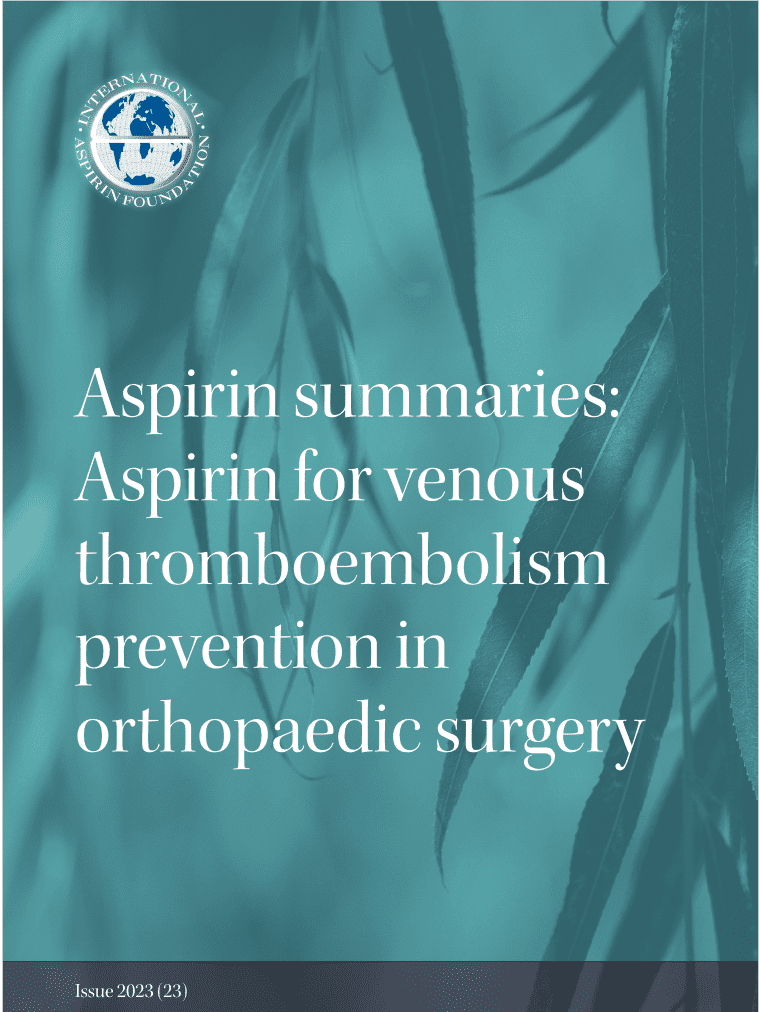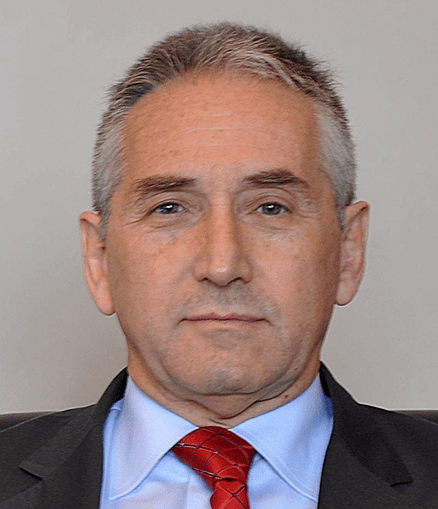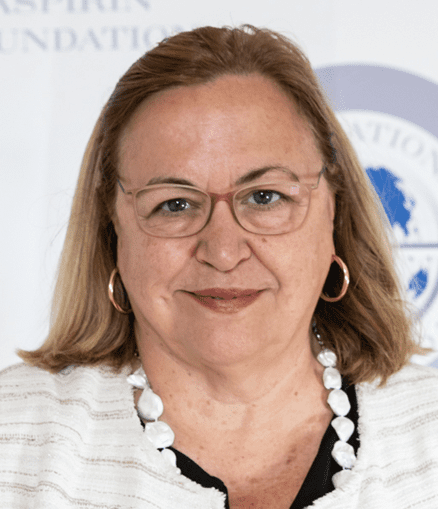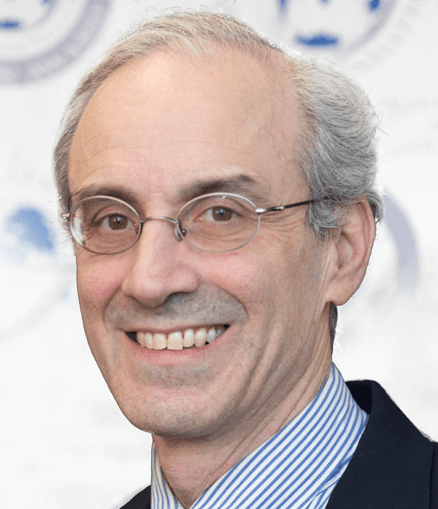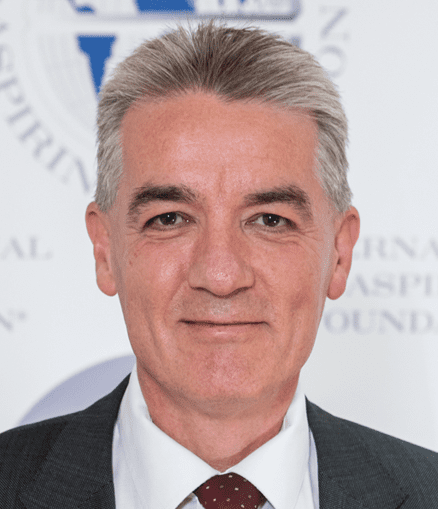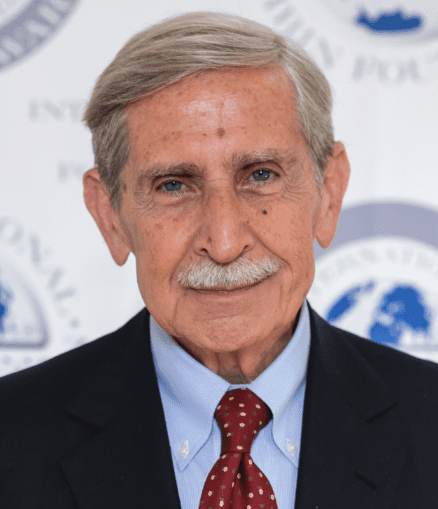Aspirin for venous thromboembolism prevention in orthopaedic surgery
Venous thromboembolism (VTE) is a condition, which includes deep-vein thrombosis (DVT) and pulmonary embolism (PE) in which a blood clot in a vein obstructs the flow of blood1. A hospital acquired VTE is one that occurs within 90 days of a hospital admission this is a relatively common and yet potentially preventable problem 1.
Risk factors for VTE are:
- Surgery
- Trauma
- Immobility
- Malignancy
- Obesity
- Hypercoagulable states
- Pregnancy and postpartum
- Hormone therapy (combined hormonal contraception [CHC] or hormone replacement therapy [HRT])1.
Mechanical prophylactic strategies for VTE include anti-embolism stockings and intermittent pneumatic compression1. Pharmacological prophylactic strategies are also important for VTE prevention, especially in general and orthopaedic surgery and require a risk benefit assessment of the person’s risk of a VTE versus the risk of a bleed1.
Options for the pharmacological prophylaxis of VTE include lowmolecular weight heparin, low-dose aspirin, and alternatives such as apixaban, dabigatran and exexilate1.
This summary will focus on recent research highlighting the role of aspirin in VTE prevention for patients undergoing orthopaedic surgical procedures.
References
- Venous thromboembolism NICE British National Formulary
https://bnf.nice.org.uk/treatment-summaries/venous-thromboembolism/
Aspirin is non inferior to low-molecular-weight heparin for thromboprophylaxis after a fracture
Low-molecular weight heparin (enoxaparin) is recommended in guidelines for thromboprophylaxis post fracture. Direct comparison trials comparing it to aspirin, which is cheaper and easier to administer are lacking. Orthopaedic patients prefer oral aspirin to a
sub cutaneous injection of heparin.
This multicentre, randomised, noninferiority trial studied adults with fractures between the hip and mid-foot and the shoulder to the wrist managed surgically or those with a pelvic or acetabular fracture. The 12,211 subjects were randomised to receive either enoxaparin
(30 mg twice daily administered subcutaneously) or aspirin (81 mg tablets twice daily) during their hospital stay and were then managed after discharge according to individual hospital protocol.
The authors conclude:
‘Among patients with orthopaedic trauma, thromboprophylaxis with aspirin was noninferior to thromboprophylaxis with low-molecular-weight heparin in preventing death at 90 days’.
In addition, aspirin was associated with:
- A low incidence of DVT (2.51%) and PE (1.49%)
- Low 90-day mortality (0.78%)
There was a similar rate of bleeding complications and serious adverse events between the two groups and the authors state that no signal was found for an increased safety risk with aspirin and no differences were detected in terms of age.
For further information please see:
O’Toole RV, Stein DM, O’Hara NN et al. Major Extremity Trauma Research Consortium (METRIC). Aspirin or low-molecular weight heparin for thromboprophylaxis after a fracture. N Engl J Med 2023;388:203-13. DOI: 10.1056/NEJMoa2205973
https://www.nejm.org/doi/full/10.1056/NEJMoa2205973#:~:text=Aspirin%20was%20noninferior%20to%20low%2Dmolecular%2Dweight%20heparin%20(P,%2C%20%E2%88%920.31%20to%200.38).
Aspirin for thromboprophylaxis after revision knee arthroplasty
This retrospective analysis studied the safety and effectiveness of aspirin for thromboprophylaxis after revision knee arthroscopy. The study reviewed 490 patients undergoing revision knee arthroscopy between 2013 and 2020 at a university teaching hospital of which 374 (76.3%) received 150 mg aspirin once daily for 28 days and 75 (15.3%) received dalteparin for 28 days due to a contraindication for aspirin use.
Primary outcome measures were a symptomatic thromboembolic event that required treatment within 90 days of the surgery. Secondary outcomes looked at surgical site infection, incidence of major bleeding, readmission rate and mortality within 90 days of surgery. The results showed no statistical difference in the incidence of DVT (the only VTE event occurring) between aspirin and other thromboprophylaxis agents.
There were no major postoperative bleeding events across the whole group and only 2 patients (who were not in the aspirin group) had wound infections.
The authors conclude:
‘Our results demonstrate that extended out-of-hospital thromboprophylaxis with aspirin may be at least as effective as other prophylaxis agents in patients undergoing revision knee arthroplasty.’
For further information please see:
Abourisha E, Srinivasan A, Bishnoi A et al. Aspirin as a thromboprophylaxis agent after revision knee arthroplasty: a retrospective analysis. Journal of Orthopaedics. 2023;41:23-27
https://pubmed.ncbi.nlm.nih.gov/37275515/#:~:text=Conclusion%3A%20Extended%20out%2Dof%2D,cheap%20compared%20with%20other%20agents.
Aspirin is still relevant for VTE prophylaxis post hip and knee arthroplasty surgery
Symptomatic PE or DVT is a major reason for readmission post arthroplasty and controversy remains regarding the best therapies to prevent this. Aspirin is relatively inexpensive and easy to administer.
In this retrospective review conducted at a single centre between January 2016 and May 2021, 1178 patients undergoing either total hip arthroplasty (THA) (721) or total knee arthroplasty (TKA) (457) received 72 hours of enoxaparin and then 4 weeks of aspirin therapy. A VTE rate of 1.19% (14 out of 1178) for all arthroplasties was found with 0.59% developing a DVT and 0.59% a PE. There were no fatal PE events within 90 days of surgery or other cause of mortality.
The authors conclude:
‘Aspirin is not only still relevant but can be considered as one of the most optimal pharmacological agents in preventing VTE after THA and TKA.’
The investigators concluded that aspirin had comparable efficacy to other antithrombotic agents, a low bleeding and wound infection risk and is cost effective and easy to administer.
For further information please see:
Pretorius J, Nemat N, Azeem I et al. Is aspirin still relevant as a single pharmacological agent for venous thromboembolism prophylaxis post hip and knee arthroplasty surgery: A retrospective review. SICOT-J 2022,8,28 https://pubmed.ncbi.nlm.nih.gov/35766820/
Aspirin is effective for VTE prevention in patients undergoing hip arthroplasty following a femoral neck fracture
This multicentre study reviews the role of aspirin for VTE prophylaxis where hip arthroplasty is undergone following trauma. The medical records of 1141 patients with a femoral neck fracture managed surgically were reviewed in 3 hospitals between 2008-2018. Patients were separated into cohorts based on the VTE prophylaxis they were given. There were 454 people receiving aspirin and 687 receiving other anticoagulants. The primary outcome measure was the development of symptomatic VTE (DVT or PE) within 90 days of the surgical procedure.
A VTE rate of 1.98% was experienced in the aspirin group compared with 6.7% in those who were given an alternative anticoagulant regimen (p<0.001). Following propensity score matching and regression modelling aspirin was shown to be noninferior to other anticoagulation strategies in preventing VTE after hip surgery for trauma.
The authors conclude that aspirin is an effective VTE prophylaxis for people undergoing hip arthroplasty following a femoral neck fracture. They state:
‘Based on the patient management benefits of aspirin for elective arthroplasty and the present study, we suggest its use in standard-risk ambulatory patients.’’
The study therefore succeeded in its aim of showing that aspirin can safely replace other VTE prophylaxis therapies in this setting.
For further information please see:
Chisari E, Tan TL, Shah R et al. Aspirin is an effective prophylaxis for venous thromboembolism in ambulatory patients with femoral neck fracture undergoing hip arthroplasty. J Bone Joint Surg Am.2022; 00:1-7 https://pubmed.ncbi.nlm.nih.gov/35030114/
Aspirin and venous thromboembolism prevention – we have come full circle
In his commentary on the Chisari study Marsh explains that this study has added further weight to the evidence for aspirin as an effective preventive strategy for VTE and lower extremity orthopaedic surgery. He explains that Chisari et al show that aspirin prophylaxis is equivalent to other anticoagulant strategies for patients with femoral neck fractures managed surgically suggesting that aspirin can be used as part of routine practice for these patients.
Marsh questions why a drug that has been studied for decades is suddenly making a resurgence for VTE prophylaxis.
He speculates that:
• We may have better research methods
• The disease process may have changed
• There may have been a bias against simpler options
in previous research
• There is now more of a focus on only clinically
relevant outcome measures in research
• Aspirin is now combined with early mobilisation
and mechanical compression not routine in earlier
studies
Marsh concludes that although its hard to know exactly why there has been this strong trend towards evidence supporting aspirins equivalence in VTE prevention things appear to have gone full circle and aspirin is now valued again as a prophylactic agent.
Marsh states that:
“This evidence may be practice changing for surgeons treating patients with hip fractures and once again elevates aspirin to a preferred prophylactic option.”
For further information please see:
Chisari, et al. We Have Come Full Circle for Venous Thromboembolism Prevention. The Journal of Bone and Joint
Surgery. Commentary and Perspective. April 6, 2022; 104 (7): e28. DOI 10.2106/JBJS.21.01459
Less joint infections with aspirin thromboprophylaxis following primary knee arthroplasty than seen with other agents
This review studied 11,547 patients undergoing primary total knee arthroplasty (TKA) in a single academic orthopaedic hospital between 2013-2019 to understand the impact of thromboprophylaxis choice upon the rate of prosthetic joint injection (PJI).
The authors found that there was a significantly lower rate of PJI, within 90 days of surgery, in people who were given aspirin 0.3% versus those on non-aspirin prophylaxis 0.8% (P < .001). Even after cofounding factors are considered, such as age, BMI, and history of VTE non aspirin therapy was associated with an almost two times higher risk of PJI. They state that aspirin thromboprophylaxis post primary TKA is independently associated with lower early PJI and that surgeons should consider the morbidity caused by PJI when deciding upon which thromboprophylaxis strategy to adopt.
The authors conclude:
“Arthroplasty surgeons should consider aspirin as the gold standard thromboprophylaxis in all patients in which it is deemed medically appropriate.”
For further information please see:
Anil U, Kirschner N, Teo GM et al. Aspirin thromboprophylaxis following primary total knee arthroplasty is associated with a lower rate of early prosthetic joint infection compared with other agents. The Journal of Arthroplasty; 38 (6) 2023 S345-S349.
https://pubmed.ncbi.nlm.nih.gov/36828050/#:~:text=With%20Other%20Agents-,Aspirin%20Thromboprophylaxis%20Following%20Primary%20Total%20Knee%20Arthroplasty%20Is%20Associated%2-0With,(6S)%3AS345%2DS349.
Disclaimers:
• The information, views and opinions expressed are not endorsed or approved by members of The Scientific Advisory Board unless otherwise stated.
• The Information section is compiled using current published information at the time of writing and whilst every effort has been made to avoid errors, professional clinical judgement is required to interpret the information given. The information given is referenced clearly for further analysis as required.
• Every effort is made by the International Aspirin Foundation to see that no misleading or inaccurate data, statement or opinion appear. The International Aspirin Foundation cannot be held responsible for any errors or for any consequences arising from the use of the information.
• The International Aspirin Foundation, its associates and The Scientific Advisory Board accept no liability whatsoever for the consequences of any such inaccurate or misleading data, information, opinion or statement.
• Any information involving drug usage, should only be followed in conjunction with the drug manufacturer’s own published literature in their own country.
• Medical sciences evolve on a continual basis and therefore independent verification of the content should be made.
• The information, views, opinions and any other material provided should not be relied upon as a substitute to professional medical advice in relation to any medical condition. The International Aspirin Foundation, its associates and The Scientific Advisory Board accept no liability whatsoever for any consequences arising from any reliance placed on such information, views, opinions and other materials in lieu of professional medical advice.

